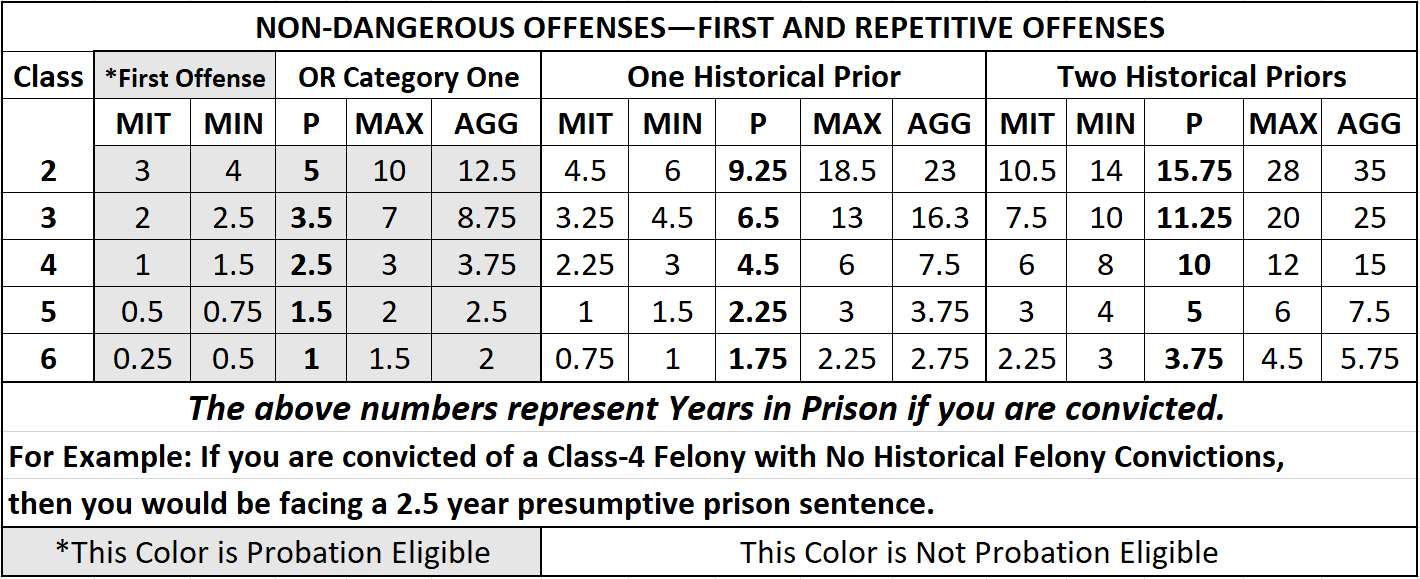Class 1 Felony: Class 1 felonies are the most serious offenses, often involving significant harm to individuals or society. Examples include first-degree murder, which is the intentional and premeditated killing of another person. Kidnapping resulting in death is another Class 1 felony, where a person is unlawfully taken or confined and later dies as a result. Additionally, sexual conduct with a minor under the age of 12, such as molestation or sexual intercourse, is considered a Class 1 felony due to the vulnerability of the victim.
Class 2 Felony: Offenses in this class are still severe but carry slightly lesser penalties than Class 1 felonies. Examples include manslaughter, which is the unintentional killing of another person without premeditation or malice aforethought. Aggravated assault with a deadly weapon, causing serious physical injury to another person, is also classified as a Class 2 felony. Furthermore, the sale or transportation of dangerous drugs, such as cocaine or methamphetamine, in substantial quantities, can be charged as a Class 2 felony.
Class 3 Felony: This class comprises offenses that may cause substantial harm but are less severe than Class 2 felonies. Examples include aggravated robbery, where a person uses or threatens to use a deadly weapon during a robbery. Arson resulting in significant property damage is also considered a Class 3 felony. Drug offenses in this class might include the possession or sale of prescription drugs like opioids without proper authorization.
Class 4 Felony: Offenses in this class are considered less severe than the previous classes but are still significant crimes. Examples include theft of property worth a certain amount, such as grand theft auto or stealing valuable items. Aggravated DUI, where a person drives under the influence and causes an accident resulting in injuries, is also a Class 4 felony. Additionally, drug offenses like possession of dangerous drugs, such as LSD or ecstasy, may be charged as a Class 4 felony.
Class 5 Felony: Class 5 felonies encompass crimes that may not cause substantial harm but are more severe than misdemeanors. Examples include forgery, which involves falsifying documents with the intent to deceive. Possession of marijuana for sale is also a Class 5 felony, indicating the seriousness of distributing large quantities of marijuana.
Class 6 Felony: This is the least severe category of felonies in Arizona, often encompassing non-violent crimes. Examples include theft of property below a specific value, such as shoplifting or stealing low-value items. Possession of a small amount of marijuana for personal use can also be charged as a Class 6 felony, although some first-time offenders may be eligible for diversion programs.
I’ve been charged with a Felony. How much time am I looking at?

This depends on the type of Felony you were charged with as well as how many historical priors you have at a given time.
There are 6 classes of Felony Offenses. A Class 1 Felony carries the harshest penalties. A Class 6 Felony carries the least harsh penalties.
